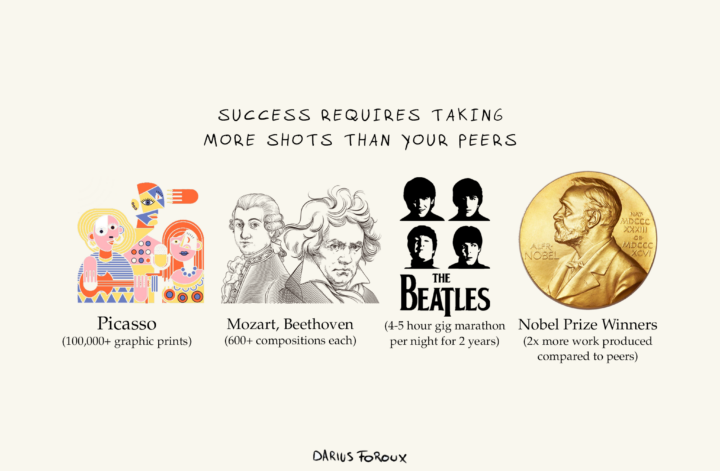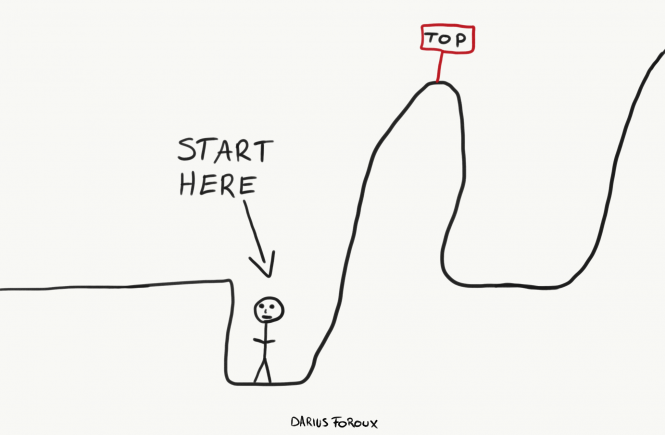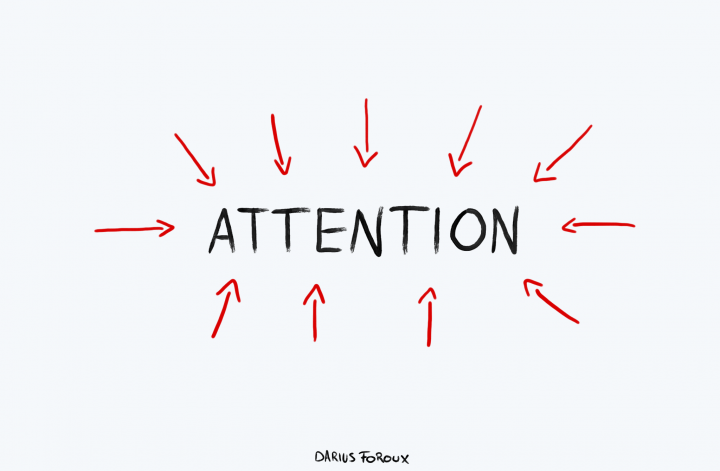Over 160 years ago, Charles Darwin published his theory of natural selection. His work process is something we can all learn from in achieving career success.
Think about it. How does a man like Darwin come up with such a theory?
In fact, how do YOU come up with an idea, service, or product that would make such a significant impact in other people’s lives? Because that’s the key to career success – making other people’s lives better.
1. It takes longer than you think
Unless you’re extremely lucky and you achieve it on your first few tries, career success really takes a long time to happen.
Darwin wasn’t chilling at home, studying fossils, or taking a shower when the idea of natural selection suddenly hit him.
The truth is even more boring: Darwin researched thousands of plant and animal species on various continents for many years. He observed, sketched, traveled, and consulted with locals and fellow scientists, recording his findings in his journal.
He came up with the theory of natural selection little by little over many years of quiet study.
Even after developing his theory, he took time to reflect on it. Darwin discussed it with other scientists for feedback. Then, he dedicated many years to writing his renowned work, On the Origin of Species.
In all, Darwin spent decades of his life coming up with natural selection.
As expected, people eventually attributed Darwin’s success to his “genius,” which irritated him. After all, Darwin had spent his life gathering data and forming his theory, not pulling it from thin air. He stressed the hard work behind his theory.
In his other book, The Descent of Man, which came out 12 years after Origin, Darwin said:
“Ignorance more frequently begets confidence than does knowledge: it is those who know little, not those who know much, who so positively assert.”
Similarly, many successful folks, like Stephen King, have a consistent work routine. As King wrote in On Writing: A Memoir of the Craft:
“I like to get ten pages a day, which amounts to 2,000 words. That’s 180,000 words over a three-month span, a goodish length for a book… only under dire circumstances do I allow myself to shut down before I get my 2,000 words.”
King said that on good days, the ten pages come to him easily and he can be out and doing errands before noon. Most times, he would eat lunch at his desk and finish the day’s work at around one-thirty in the afternoon. When the “words come hard,” he’d spend more of the day on his desk “fiddling around at teatime.”
Either way, King gets his work done, and he does it every single day without excuse.
2. The key is not to miss but to attempt more shots than your peers
Before they hit it big, The Beatles played four to five-hour gig marathons, non-stop, per night and almost every night for two years as an unknown band in German bars and nightclubs.1Source: Smithsonian Magazine
Lennon and McCartney later attributed their meteoric rise to fame to this marathon of practice and performance. The Beatles would go on to release twelve original UK studio albums in a seven-year span (1963 to 1970), with many of these albums reaching multi-platinum status.
This trend of consistently creating high quality work is something consistent with many individuals who achieved lasting career success.
- Mozart and Beethoven each wrote over 600 pieces of music, far surpassing the output of most of their contemporaries, who often composed less than 100 pieces in their entire careers.2Source: Mozart Project
- Picasso was incredibly prolific, creating an estimated 13,500 paintings, 100,000 graphic prints or engravings, 34,000 book illustrations, 300 sculptures and ceramics. His output far surpassed that of most other professional artists.3Source: PicasoMio
- Research indicates that Nobel prize winners generally produce almost twice as much work as their peers in the same fields. 4Source: Nature Index
The idea that success happens due to a “big moment” or a “hit of inspiration” is a myth. Inspiration and success happen by doing the work.
Successful people don’t “find the time” to do what they need to do: They make the time.
Much like in basketball, these folks achieved success not because they never missed, but because they attempted the most shots.
What you do today dictates your career success tomorrow
History and human memory tend to highlight greatness while overlooking the work it took to achieve it. Famous figures like Mark Twain or Picasso may seem like they just effortlessly created masterpieces.
But the truth is, they worked hard at their craft for years to produce the few classics we admire today.
What you do today determines tomorrow. Every choice you make, every task you complete, every goal you set and reach: All of these contribute to your career success.
And while small actions – like doom scrolling social media – may seem insignificant at the time, these add up. And they eventually affect your life’s trajectory.
So start executing today. No more excuses.
Order The Stoic Path to Wealth
My new book, The Stoic Path to Wealth (Portfolio / Penguin), is out now.

Learn more here: stoicpathtowealth.com




